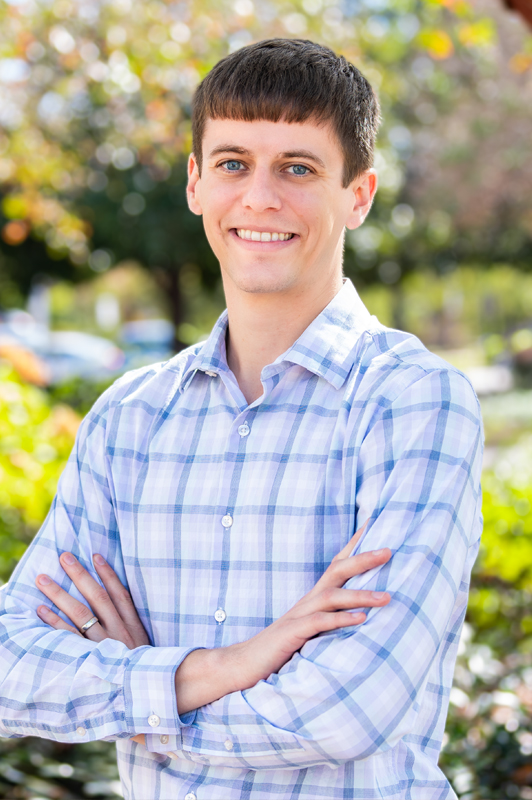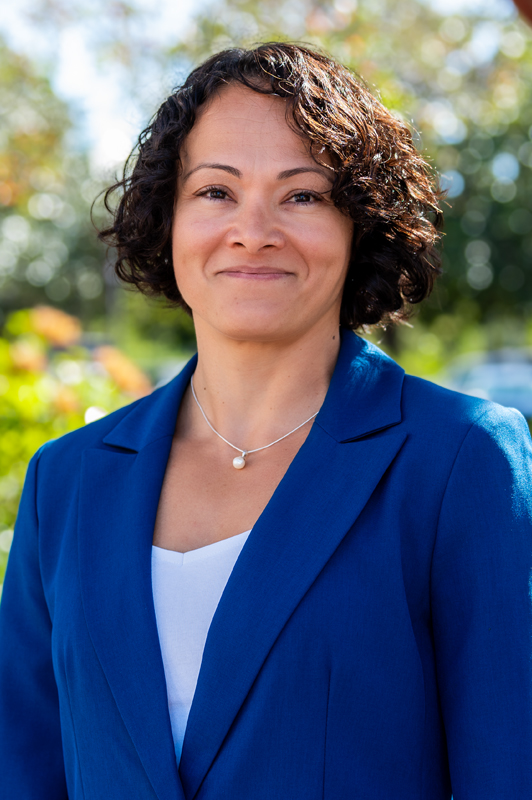Assistant professor in chemical engineering wins NSF CAREER Award
Published: Jan 22, 2025 5:30 AM
By Joe McAdory
Driven by evolving technological needs, consumer preferences, environmental concerns and regulatory requirements, the $100 billion-plus coatings industry has a growing need to develop new products.
Michael Howard, an assistant professor in chemical engineering, offers a promising solution: a computer-modeling approach to engineer the drying-induced assembly of colloidal-particle coatings, such as paint. This innovative method could streamline production, saving time and reducing resource consumption.
“The outcome of this research could empower scientists and engineers to understand and design the materials and processes needed to reformulate coatings, shortening the research and development cycle in both academic and industrial settings,” Howard explained.
Howard earned a five-year, $500,000 National Science Foundation (NSF) CAREER Award for his project, “Multiscale modeling for self-assembly of colloidal-particle coatings with gradient compositions.”
The NSF’s Faculty Early Career Development (CAREER) Program is one of the foundation's most prestigious awards, supporting early career faculty who have the potential to serve as academic role models and lead advances in their fields.
“I'm excited and humbled to receive this award because it uniquely recognizes both research and teaching,” Howard said. “The reason why I wanted to become a professor is that I enjoy both, so winning this award to support and recognize my work in those areas is really meaningful to me.”
Selen Cremaschi, chair of the Department of Chemical Engineering, praised Howard for his innovative and impactful research.
“Dr. Howard is committed to his students’ education and success and driven to contribute to solving complex challenges. Our department is very proud of Dr. Howard, and we are thrilled that his integrated research and teaching career plans are recognized by this prestigious award,” Cremaschi said. “Winning the prestigious NSF CAREER Award further highlights his outstanding achievements and underscores his promise as a leading researcher.”
Howard’s modeling approach will predict the composition of colloidal-particle coatings made by solvent drying with unprecedented accuracy using a combination of 1) a physics-based continuum model with realistic particle interactions and hydrodynamics, 2) a machine-learned model, trained from particle-based simulations, to refine the physics-based model and 3) a surrogate model to relate particle properties and processing conditions to composition.
“My long-term research goal is to computationally design nanomaterials and processing strategies for making functional soft materials using my unique background in statistical thermodynamics, transport and high-performance computing,” Howard said. “Achieving the objective of this project will position me not only to design coatings but also to apply similar techniques to other nanomaterials and processes.”
The coatings industry might not be the only beneficiary. Howard’s students are, too.
Howard will integrate research with education through virtual-reality (VR) activities on nanoscale engineering. Specifically, his research will be used to create immersive visualizations that enrich learning about nanoscale concepts that are otherwise challenging to demonstrate.
These activities will be tailored for a wide range of learners, including K–12 students, undergraduates, and the public. To support this, Howard will develop a new VR visualization platform, focusing on sustainability, ease of creating activities and accessibility for learners with different levels of technology.
Howard’s proposed VR platform will include:
- A VR visualization tool that delivers a high-quality educational experience on both state-of-the-art headsets and commodity cell phones. This tool will ensure VR activities can be used with large groups of students and those with less access to computing resources.
- A framework for creating activities that doesn’t require advanced programming knowledge and a curated activity repository. This framework and repository will facilitate content creation by experts and adoption by non-experts.
“(Assistant professor) Symone Alexander and I piloted the use of VR activities with Auburn chemical engineering students through an AUX: Immersive Learning Experiences grant from the Biggio Center. Our students responded really positively, so I’m excited to build on that success and bring this emerging technology to a wider community.”
Additionally, Howard's project aims to broaden participation in STEM activities through undergraduate research opportunities, train a more competitive U.S. workforce in computational science and develop and disseminate open-source scientific software.
Media Contact: , jem0040@auburn.edu, 334.844.3447
Howard earned a five-year, $500,000 National Science Foundation (NSF) CAREER Award for his project, “Multiscale modeling for self-assembly of colloidal-particle coatings with gradient compositions.”



